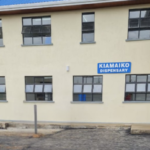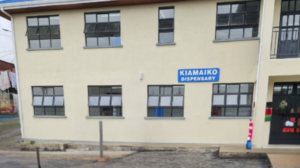A whistleblower from the Kenya Climate Innovation Centre (KCIC) has shed light on the growing dissatisfaction among participants in the AgriBiz program.
This program was established to assist small and medium-sized enterprises (SMEs) in the agricultural sector with financial support and capacity building services.
However, the journey for many participants has been anything but smooth.
The source disclosed to leaked.co.ke, under anonymity expressed frustration over the failure of KCIC to deliver on its promises.
Last year, several SMEs were approved for grant funding under the AgriBiz program after a rigorous vetting process.
The approved businesses signed contracts, and the future seemed bright as they anticipated receiving the funds that would help them grow and thrive in the agricultural sector.
Unfortunately, as of today, many of these enterprises have yet to receive any of the promised funds.
Attempts by the participants to seek clarity on the delays have largely been in vain.
According to the whistleblower, several attempts to contact KCIC officials have been met with silence.
To make matters worse, many staff members of the organization, who were once in charge of the program, have apparently resigned, further complicating communication channels.
The ongoing turnover has left many entrepreneurs in a state of uncertainty, unsure if they will ever receive the financial support they were promised.
KCIC’s Chief Executive Officer (CEO), in a recent statement, attributed the delay to an ongoing audit.
While audits are standard procedures to ensure financial transparency and accountability, the participants in the program feel increasingly suspicious.
Some have begun to hint that the funds may have been misappropriated, with allegations that something ‘fishy’ is going on behind the scenes.
These suspicions have only grown as time passes with no clear updates or answers from the organization.
In a recent communication, KCIC acknowledged the delays and cited a lengthy four-year review process of the AgriBiz program, which is supported by the European Union (EU) and the Danish International Development Agency (DANIDA).
However, the organization failed to provide a clear timeline for when the promised funds would be released.
This lack of clarity has left the SMEs anxious and unsure about their future.
For many of the entrepreneurs, this delay is not just an inconvenience but a potential threat to their businesses’ survival.
Agriculture in Kenya faces numerous challenges, and many SMEs are heavily reliant on external support to grow.
The promised grants would have provided critical funding to help these businesses innovate, expand, and improve productivity.
Without these funds, they are left in limbo, unable to plan for the future or invest in much needed resources.
The whistleblower emphasized the growing frustration among participants, stating, “We feel something fishy is going on. It’s like they wasted our time for nothing. It’s very saddening. Ni kama pesa ilikulwa (It feels like the money was eaten).”
This sentiment reflects the deepening mistrust that many participants now have toward the KCIC and the AgriBiz program.
The situation raises important questions about the management and accountability of organizations tasked with supporting critical sectors like agriculture.
If the funds intended to help SMEs are delayed or misappropriated, it not only affects the businesses but also the broader goal of improving food security and economic growth in Kenya.
Even as the participants continue to wait for a resolution, they are left hoping that the audit will conclude soon and that the funds will be released without further delay.
However, with no clear timeline in sight and ongoing staff resignations, the future of the AgriBiz program and the SMEs it was designed to support remains uncertain.
Entrepreneurs are now urging relevant authorities to investigate the matter and ensure that any wrongdoing is addressed.
They also call on KCIC to be more transparent about the audit process and provide a clear plan for disbursing the much needed funds.
Without swift action, the program that was once seen as a beacon of hope for small businesses in Kenya’s agricultural sector may become yet another failed initiative in the eyes of its participants.





















Add Comment